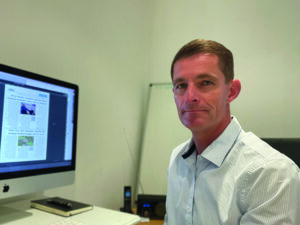Many pieces of the sustainability mosaic
Two recent significant conferences may appear miles apart in their targeted audience, however on closer inspection they are very aligned on the subject of the environment and sustainability. Our industry’s own Glazing Summit and the COP26 Climate Change Conference both attempted to tackle the issue of the environment. Sustainability has become a focus for a number of major industrial sectors, and many are battling to make sense of the many pieces of the sustainability mosaic. Listening to industry leaders discussing sustainability at the Glazing Summit and how we need to do more, drew me back to 2008 and the launch of the PVC Aware campaign. In an open letter to the industry, PVC Aware declared ‘Sustainability is today a fundamental part of doing business. From the high street to high rise development, no company can afford to ignore the ‘green’ agenda. And the window and building products industries are no exception. Going forward and in many cases already depending on sector, you have to be able to demonstrate that your products can contribute towards sustainable construction.”
This statement was made 13 years ago, and was a bold move by the PVC sector and was just as relevant for the aluminium and timber segments of the industry. Since this time little attempt has really been made to address many of the issues surrounding sustainability and it was interesting to see and hear opinion on the subject at the Glazing Summit. When the audience was asked if they had a ‘sustainability policy’ roughly half the room raised their hand. COP26 really has accelerated the general populations awareness of climate change and people are starting to ask the right questions of themselves. As Leo Tolstoy, one of the great authors of all time, wrote: ‘Everyone thinks of changing the world, but no one thinks of changing himself.’ This is the big sea change that will develop over the next few years, people will start changing their own habits and business needs to start reacting to this. Interestingly, Government policy is also often set by people’s changing habits. A prime example is when the Government banned smoking in pubs, this was only actioned when the majority of people opted to not smoke anyway. The ‘ripple effect’ is also a major driver of changing habits. Studies in the US, Germany and Sweden showed that solar panels spread in ‘ripples’. One households decision to install strongly influences a neighbours decision. In a restaurant, if one of your party orders a vegetarian dish, another may follow. As more and more members of society reduce their emissions, others will follow.
By saying it is individuals that will drive sustainability is not an attempt to let industry off the hook. Industry needs to predict and react to customers changing attitudes. If your customers are demanding sustainable products from sustainable firms, it probably needs addressing. The issue that many have is how am I going to make my small business sustainable? In the fenestration sector much conversation and action centres around ‘re-cycling’ – this is a piece of the mosaic, but as Boris Johnson recently stated ‘is not the answer’. It’s the small changes that we make in our own businesses and lives that can underpin a ‘Sustainability Policy’. An installer can make easy and simple changes, that can be presented to customers as part of a commitment to helping the environment: reducing packaging; reduce paper working and billing; ban single use coffee cups; non-meat lunch day; turn office heating down and use LED lights. This can be documented and presented to customers. All layers of the supply chain can do their bit, being a small company is no excuse, your customers will soon be demanding to see evidence of your sustainable credentials. It’s time to change yourself and not wait for the world to change.
John Cowie – Editor










